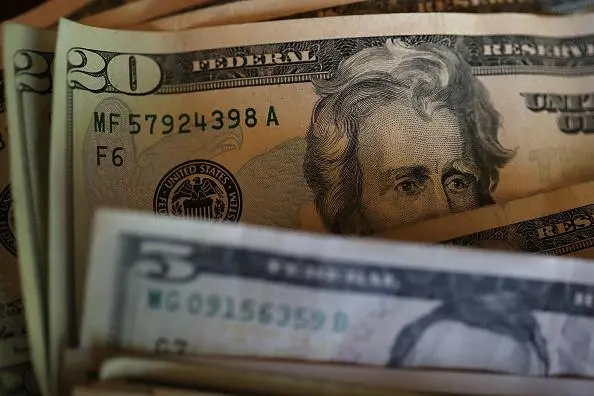PHOTO
LONDON- Ghana and Pakistan's return to international debt markets this week, a year after COVID slammed them shut, has been an encouraging sign for the world's poorest countries, but investors still need convincing.
As the pandemic enters its second year, funding needs are huge. Lower growth and higher deficits mean public debt in developing nations swelled to more than 60% of gross domestic product last year, rising by double-digit percentage points from 2019 in Latin America, the Caribbean and South Asia, Eurodad estimates.
They have a route to cope with the debt load. Last year, the International Monetary Fund and the World Bank launched the Debt Service Suspension Initiative (DSSI) and its accompanying Common Framework to help the poorest nations survive the pandemic. They create obvious benefits. But they also carry additional hazards.
The Common Framework effectively requires a country to try to restructure its private debt. That would trigger a default in the eyes of credit-ratings agencies, a situation investors wouldn't want to be dragged into.
The scheme has been something of a hot potato even after Ethiopia said in January it would be the first country with an international government bond, and not already in default, to use it. It was promptly downgraded by Fitch and S&P.
Neither Ghana, Pakistan nor the Maldives, which also sold an Islamic finance bond this week, had signalled plans to follow suit. This week's debt sales showed how sensitive the issue has become.
"The G20 Common Framework requires the debtor country to seek comparability of treatment with private creditors, and investors are concerned how that may be implemented," said Jim Ho, a sovereign debt restructuring lawyer at Cleary Gottlieb.
Investors who bought into Ghana's $3 billion bond sale on Wednesday said officials had assured the would-be buyers that the government, which has debt approaching 80% of GDP and spends roughly half of its revenue on interest payments, was not planning to pursue debt relief.
"They were saying they are not going for DSSI," said Richard Briggs, at fund manager GAM, who bought a slice of the issue. "They were worried about the perception of what DSSI might mean."
In what was seen as an alternative, one of the bonds Ghana sold was a four-year, zero-coupon issue. Zero coupons are not common among emerging-market issuers, but the lack of regular coupon payments effectively allows the government to defer some it payments.
That cost Ghana, classified as at high risk of debt distress by the IMF. Its yield-to-maturity equivalent was 7.3%, around 150 basis points above its existing comparable bonds.
Maldives and Pakistan took a different approach. They have applied for DSSI, as has Ivory Coast which become the first of the DSSI cohort to return to borrowing markets in November.
Analysts said that partly explained why Maldives' $200 million five-year sukuk was less than it planned to borrow and priced at 10.5%, reckoned by Tellimer to be one of the highest yields at issue since Mongolia in 2016.
"The operation may signal that investors remain sceptical about the Maldives' post-Covid recovery," Tellimer's Stuart Culverhouse wrote in a note.
Laos in south east Asia, meanwhile, has been forced to scrap a bond sale for the third time this month.
AFRICA ISSUERS
Despite the doubts, many saw this week's sales as the latest sign of a gradual recovery of poorer nations. For around a year, they have had to rely on debt relief and funding from international financial institutions like the IMF.
"These have opened the issuance door to those EM countries burdened by almost a year of noise surrounding PSI (private sector involvement) and the G20 common framework," said Simon Quijano-Evans, chief economist Gemcorp Capital.
Hastening the push is a desire to secure funding before U.S. bond yields possibly climb higher later in the year.
"There's certainly more uncertainty looking forward, but it's difficult for most borrowers to imagine that by waiting they're going to gain economic advantage, i.e. lower financing costs," said Stefan Weiler, JPMorgan's head of Central and Eastern Europe, Middle East and Africa debt capital markets.
The first quarter saw around $225 billion of EM debt issuance, according to Refinitiv data, up from $181 billion in the same period of last year, the final weeks of which were blighted by the pandemic.
"We do anticipate a meaningful pickup in sovereign supply from Africa this year," Weiler said. "There's general expectation that several countries will look to come to the bond market this year."
Low-income countries would need $200 billion over five years to fight the pandemic and $250 billion to return to the path of catching up to higher income levels, IMF Managing Director Kristalina Georgieva said on Tuesday.
Some help may come from a possible $650 billion handout of the IMF's Special Drawing Rights - its quasi-currency - which might be finalised at the spring meetings next week. []
On the issue of countries not openly talking about whether they would opt for DSSI or the Common Framework at bond road shows, "you wouldn't expect them to, said Jeff Grills, head of emerging markets debt at Aegon Asset Management. "We will probably learn more at the IMF meetings"
Tom Arnold and Marc Jones
((Tom.Arnold@thomsonreuters.com; +442075428510; Reuters Messaging: tom.arnold.thomsonreuters.com@reuters.net))





















